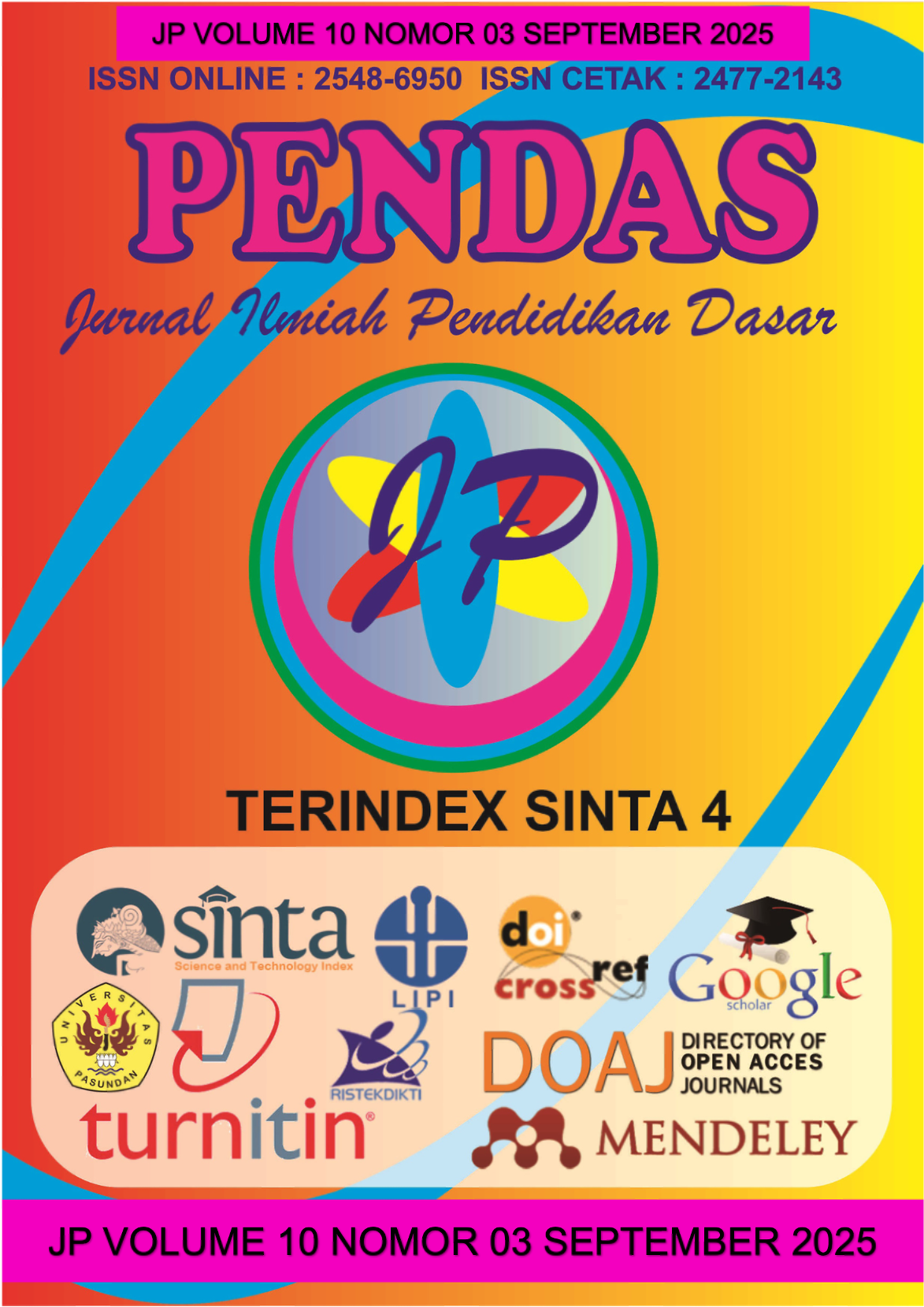PERAN ORANG TUA DAN POLA ASUH TERHADAP KESADARAN LITERASI MEMBACA PADA SISWA KELAS III SD NEGERI 1 WATUBELAH
DOI:
https://doi.org/10.23969/jp.v10i03.31707Keywords:
The Role of Parents; Parenting Patterns; Literacy AwarenessThe Role of Parents; Parenting Patterns; Literacy AwarenessAbstract
Education is an important means to develop students' potential, one of which is through reading literacy. However, students' reading interest in Indonesia is still relatively low, as shown by the PISA survey results, which show that Indonesian students' reading ability is below the average for OECD countries. At SD Negeri 1 Watubelah, a literacy program has been implemented, but the reading interest of grade IIIA students is still low. The contributing factors include lack of motivation, the influence of technology, and minimal reading support in the family environment. This study aims to describe the role of parents and their parenting styles on the reading literacy awareness of grade III students at SD Negeri 1 Watubelah. The method used is descriptive qualitative with data collection techniques such as observation, interviews, and documentation. The research subjects included grade IIIA students and parents. The results show that the active role of parents in accompanying, providing motivation, and providing reading facilities at home can increase children's interest and awareness in reading. Democratic parenting styles have been proven to be more effective in forming reading habits in children compared to authoritarian and permissive parenting styles. These findings emphasize the importance of collaboration between parents and schools in building a culture of literacy from an early age.
Downloads
References
Astuti, S. P., & Handayani, S. (2017). Pengaruh Perhatian Orang Tua dan Motivasi Berprestasi terhadap Prestasi Belajar Fisika. SAP (Susunan Artikel Pendidikan), 2(1).
Clark, Christina. (2007). Why it is Important to Invove Parents in Their Children‟s Literacy Development. National Literacy Trust.
Desmita. (2012). Psikologi Perkembangan Peserta Didik. Bandung: PT Remaja Rosdakarya.
Harvard Family Research Project. (2006). “Family Involvement Makes a Difference.
Kemendikbud. (2016). “Peringkat dan Capaian PISA Indonesia Mengalami Peningkatan”.
Lestari, S. (2016). Psikologi Keluarga. Jakarta: Prenadamedia Group.
Lestari, S. (2017). Parenting with Leadership Peran Orang tua dalam Mengoptimalkan dan Memberdayakan Potensi Anak. Jakarta: PT Elex Media Komputindo.
Miles, M.B, Huberman, A.M, & Saldana, J. (2014). Qualitative Data Analysis, A Methods Sourcebook Editon 3. USA: Sage Publications.
Reese, Elaine dkk. (2010). A Review Of Parent Intervention for Preschool Children‟s Language And Emergent Literacy. Volume 10, Nomor 1, halaman 97-117.
Santrock, W John. (2012). Life Span Development .Jakarta: PT Gelora Aksara Pratama.
Sari, D. (2017, December). Peran orang tua dalam memotivasi belajar siswa. In Prosiding Seminar Nasional Program Pascasarjana Universitas PGRI Palembang.
Schunk, H Dale, dkk. (2012). Motivasi dalam Pendidikan. Jakarta: PT indeks.
S Fariha, P Nurhabibah, WN Jannah Analisis Pola Asuh Orang Tua terhadap Keterampilan Berbicara Siswa Kelas IV di Sekolah Dasar. Jurnal Cendekia Ilmiah 3 (5), 3111-3117.
Wahyuni, S.R. (2017). Peran Orang Tua terhadap Prestasi Siswa di Kelas 5 di SD Al-Azhar Syifa Budi Pekanbaru. Journal: Journal Endurance: vol (2), hal. 18-24.
Wahyuningsih, A., Widiawati, H., & Zulva, N. (2021). Upaya bimbingan belajar orang tua siswa pada masa pandemi covid-19 di Sekolah Dasar. Jurnal Basicedu, 5(6), 5640-56470.
Downloads
Published
Issue
Section
License
Copyright (c) 2025 Pendas : Jurnal Ilmiah Pendidikan Dasar

This work is licensed under a Creative Commons Attribution 4.0 International License.














































